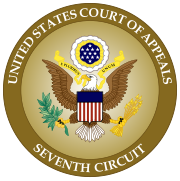
A green card, known officially as a Permanent Residence Card (PRC), is a document issued to immigrants under the Immigration and Nationality Act (INA), bestowing the rights, benefits, and privileges of permanently residing in the United States.. Individuals with green cards are known as Lawful Permanent Residents (LPR) or green card holders. There are an estimated 13.2 million green card holders of whom 8.9 million are eligible for citizenship of the United States. Approximately 65,000 of them serve in the U.S. Armed Forces.

The Illegal Immigration Reform and Immigrant Responsibility Act of 1996, Division C of Pub.L. 104–208, 110 Stat. 3009-546, enacted September 30, 1996, made major changes to the Immigration and Nationality Act (INA) of the United States, which the bill's proponents argued was mainly due to the rapidly growing illegal immigration population in the country. "These IIRIRA changes became effective on April 1, 1997."
Deportation of Cambodian refugees from the United States refers to the refoulment of Cambodian-Americans convicted of a common crime in the United States. The overwhelming majority of these individuals in removal proceedings were admitted to the United States in the 1980s with their refugee family members after escaping from the Cambodian genocide, and have continuously spent decades in the United States as legal immigrants.
Immigration and Naturalization Service v. Predrag Stevic, 467 U.S. 407 (1984), was a U.S. Supreme Court case holding that an alien seeking to avoid deportation proceedings by claiming that he would be persecuted if returned to his native land must show a "clear probability" that he will be persecuted there.
Immigration and Naturalization Service v. Cardoza-Fonseca, 480 U.S. 421 (1987), decided that the standard for withholding of removal set in INS v. Stevic, was too high a standard for applicants for asylum to satisfy. In its place, and consistent with the standard set by the United Nations, the Court in Cardoza-Fonseca held that an applicant for asylum in the United States only needs to demonstrate a "well-founded fear" of persecution, which can be met even if the applicant does not show that it is more likely than not he will be persecuted if returned to his home country.
Immigration and Naturalization Service v. Aguirre-Aguirre, 526 U.S. 415 (1999), examined a doctrinal question last presented to the U.S. Supreme Court in Immigration and Naturalization Service v. Cardoza-Fonseca. In Aguirre-Aguirre, the Court determined that federal courts had to defer to the Board of Immigration Appeals's interpretation of the Immigration and Nationality Act.
Immigration and Naturalization Service v. Abudu, 485 U.S. 94 (1988), was a United States Supreme Court case in which the Court shifted the balance toward adjudications made by the INS and away from those made by the federal courts of appeals when aliens who had been ordered deported seek to present new evidence in order to avoid deportation. The Court ruled that courts must review the Board of Immigration Appeals's decision to deny motions to reopen immigration proceedings—the name of the procedural device used to present new evidence to immigration officials—for abuse of discretion.
Immigration and Naturalization Service v. Doherty, 502 U.S. 314 (1992), was a United States Supreme Court case which confirmed that the Attorney General of the United States has broad discretion to reopen deportation proceedings, as well as other adjudications heard before immigration courts.
Cancellation of removal or termination of removal, formerly known as suspension of deportation, under the Immigration and Nationality Act (INA) of the United States is a legal remedy available to all qualified people who have been placed in removal proceedings. Cancellation of removal is linked by reference to a waiver of inadmissibility, which is another form of relief under the INA that effectively operates parallel to cancellation of removal.
The term aggravated felony was created by the United States Congress as part of the Immigration and Nationality Act (INA) to define a special category of criminal offenses. The INA says that certain aliens "convicted of an aggravated felony shall be considered to have been convicted of a particularly serious crime." Every "legal immigrant," including a "national but not a citizen of the United States," who has been convicted of any aggravated felony is ineligible for citizenship of the United States, and other than a refugee, every alien who has been convicted of any aggravated felony is ineligible to receive a visa or be admitted to the United States, if his or her "term of imprisonment was completed within the previous 15 years."
Northwest Immigrant Rights Project (NWIRP) is a non-profit legal services organization in Washington State. NWIRP's mission is to promote justice by defending and advancing the rights of immigrants through direct legal services, systemic advocacy, and community education.

Ira J. Kurzban is an American civil rights and immigration lawyer. He is the author of Kurzban's Immigration Law Sourcebook, published by the American Immigration Council. Kurzban received widespread media coverage during the 1980s for his representation of Haitian immigrants in Miami, and, in the 1990s and more recently, for his representation of the Haitian government and its two-time president, Jean-Bertrand Aristide.
Exceptional circumstances or exceptional situations are the conditions required to grant additional powers to a government agency, particularly a government leader or a judge, so as to alleviate, or mitigate, unforeseen or unconventional hardship. The term is commonly used in Australia, where it has been applied in various contexts, most recognizably in relation to special consideration policies for students and drought relief payments for farmers known as Exceptional Circumstances Relief Payments or ECRP. It is similarly used in the law of the United States, particularly in the Immigration and Nationality Act (INA).
Communist Party of the United States v. Subversive Activities Control Board, 351 U.S. 115 (1956) and 367 U.S. 1 (1961), was a Cold War-era federal court case in the United States involving the compelled registration of the Communist Party of the United States, under a statute requiring that all organizations determined to be directed or controlled by the "world Communist movement" publicly disclose detailed information as to their officers, funds, and membership.
Vartelas v. Holder, 566 U.S. 257 (2012), was a United States Supreme Court case in which the Court held that the enforcement of a provision of the Illegal Immigration Reform and Immigrant Responsibility Act of 1996 was applied retroactively to Panagis Vartelas and was thus unconstitutional.

In some jurisdictions, a petition for review is a formal request for an appellate tribunal to review and make changes to the judgment of a lower court or administrative body. If a jurisdiction utilizes petitions for review, then parties seeking appellate review of their case may submit a formal petition for review to an appropriate court. In the federal judiciary of the United States, the term "petition for review" is also used to describe petitions that seek review of federal agency orders or actions.
Reyes Mata v. Lynch, 576 U.S. ___ (2015), is a United States Supreme Court case in which the Court ruled that the federal courts of appeals have jurisdiction to review the orders of the Board of Immigration Appeals to reject motions to reopen.
Deportation of Afghan refugees from the United States refers to the refoulment of Afghan refugees with no criminal conviction and the involuntary removal of Afghan-Americans who have been convicted of a common crime in the United States. Some of these individuals in removal proceedings were admitted to the United States in the 1980s with their refugee family members after escaping from genocide and persecution, and have continuously spent decades as legal immigrants.
Deportation of Americans from the United States refers to the involuntary removal of U.S. citizens or nationals who have been convicted of a common crime in the United States. Such deportation entitles Americans to seek damages, which may include immigration benefits and/or money, in the form of injunctive relief under the Federal Tort Claims Act (FTCA) and Bivens v. Six Unknown Named Agents. Some Americans have been placed in immigration detention centers to be deported but were later released. "Recent data suggests that in 2010 well over 4,000 U.S. citizens were detained or deported as aliens[.]"








